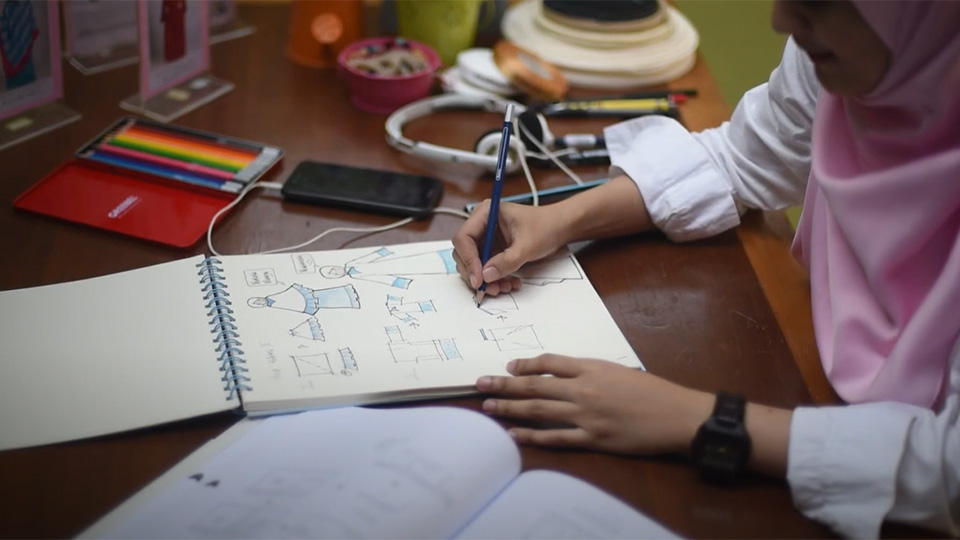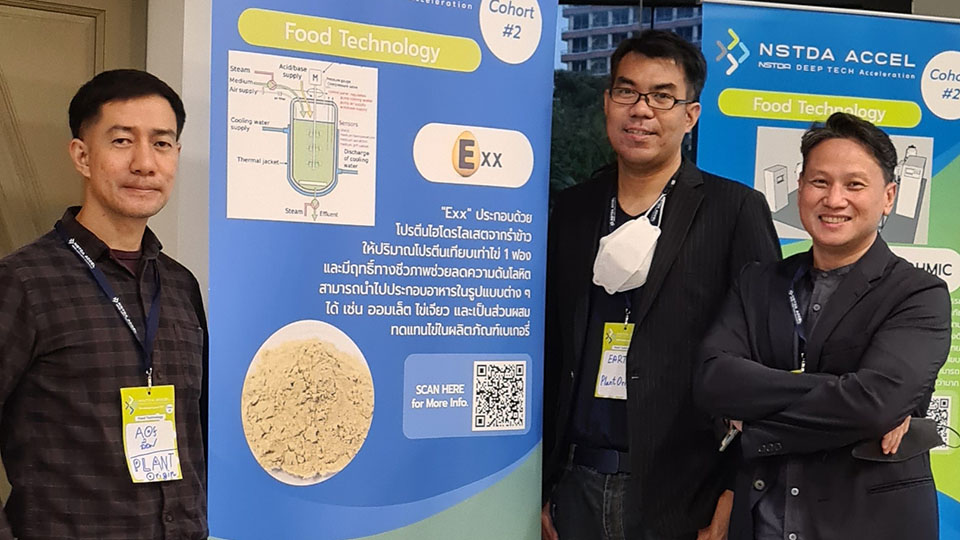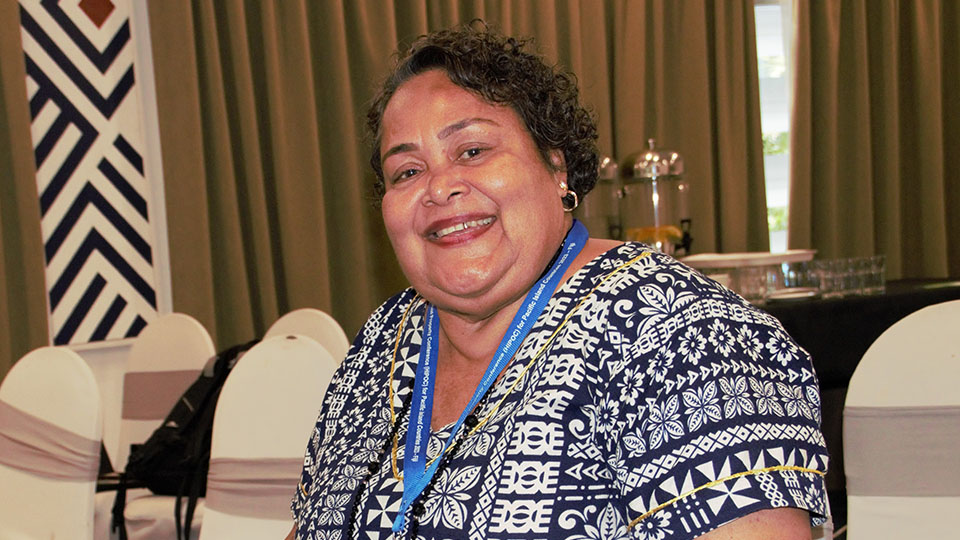Bertram Chemical, Thailand

Registration No. Kor222222)
In the late 1950s, Boonchua Eiampikul and Tang Leng Yong, two Chinese immigrants who had arrived in Thailand twenty years earlier, met for the first time. Tang Leng Yong – known locally as Master Tang – was a respected practitioner of traditional Chinese medicine. He took Boonchua under his wing as his apprentice and started to teach him all he knew about his trade.
Boonchua was a quick study, and Master Tang was impressed with his sincere interest and devotion to the traditional ways of their ancestors. After working together for a while, Master Tang decided that it was time to share with Boonchua one the most effective Chinese medicinal formulas he knew of – a unique kind of herbal mixture that alleviates dizziness and fatigue. Recognizing the importance such a formula could have for the growing Chinese population in Thailand, Boonchua combined his entrepreneurial spirit and business savvy with Master Tang’s traditional knowledge and went to work developing a new product.
Research and Development
Drawing on Master Tang’s teachings, Boonchua started refining the forumla and ultimately transformed it into an oil-based product. To test its effectiveness, he produced and sold small quantities of it to the Chinese community in Bangkok. Called Siang Pure Oil, it was an instant success and demand grew rapidly. To expand production, Boonchua hired a salesperson and officially established a company called Chakrintr Ltd. Partnership in 1963. The small family business helped Siang Pure Oil become popular throughout Thailand. Demand for Siang Pure Oil never seemed to wane, and to increase production even further the company moved to a more central location in Bangkok and changed its name to Bertram Chemical Works Ltd. Partnership. As the oil’s popularity grew to neighboring countries, Boonchua’s three daughters stepped in to help, and in 1982 the company was renamed Bertram Chemical (1982) Co., Ltd. (Bertram).

Based upon a formula passed down through generations of traditional Chinese medicine practitioners from the Shantou region, Siang Pure Oil is made purely of herbs without any chemical additives. Ingredients include menthol, peppermint oil, clove, camphor, and cinnamon, which give the oil its well-known brown-yellowish color. Siang Pure Oil has properties similar to smelling salts and is predominately used to relieve dizziness and symptoms of fainting, but it can also be used to relieve indigestion, cramps, bone and joint aches, bruises, muscle pain and insect bites. Bertram also developed a derivative product – Siang Pure Balm – which has a thicker consistency and as such is easier to use to relieve pain from sore muscles and bruises.
Until 2002 Siang Pure Oil and its derivative Siang Pure Balm were Bertram’s only products. Although both products enjoyed success for over forty years, there was an unexpected drop in sales in the late 1990s. Determined to figure out what went wrong, the company took a customer survey and was surprised to discover that Siang Pure Oil had developed a reputation as a frumpish product mostly used by the elderly population throughout Asia. In addition, increasing competition and newer advertising methods were encroaching on the company’s market share. One of the main reasons behind Siang Pure Oil’s undesirable reputation was simply because it had been successful in the market for so many years. While sales were steadily increasing throughout the product’s lifetime, the company enjoyed many lifelong customers who started buying Siang Pure Oil when it was first released. These customers had aged alongside the company, and although their loyalty to the brand was important, Bertram found that their product was increasingly viewed as something only older people used.
To refresh the company’s image and appeal to a younger generation, Bertram’s R&D developed a new product which had the same ingredients as Siang Pure Oil, but was reformulated. The new product, called Siang Pure Oil – Formula II, is crystal clear, less viscous and contains less menthol, which gives the oil a discrete scent and does not stain clothing. Bertram also developed a Formula II balm, and relabeled its original oil and balm as “Formula I”.
In an effort to expand their portfolio even further, Bertram developed a range of exciting new complementary products to appeal to a wider and younger audience. These products include Siang Pure Inhaler, Peppermint Field Inhaler, Peppermint Field Gel and Balm Stick, Green Tea Scented Peppermint Field Gel and Balm Stick, and See Chuan Oil. Each product was developed to have the same effects as Siang Pure Balm, but also have additional properties that would appeal to a new customer base, particularly the Peppermint Field product line. Peppermint Field Gel and Peppermint Balm Stick use the same ingredients as Siang Pure Oil, but both are fragrant, quickly absorbable, are not greasy, and leave no residue. Due to its packaging, the balm stick in particular is incredibly easy to use and can be applied without touching the actual balm, thus leaving no stains on hands. The green tea scented type has all the same benefits as the original, but with the added refreshing and relaxing scent of green tea.
The Peppermint Field Inhaler in particular is a very unique product that the company would use to reinvent its image. “It’s a departure from other products available in the market,” explained Mrs. Suwanna Akrapongpisak, Bertram Marketing Director and daughter of the company founder. “The aroma is not as strong yet most refreshing, somewhat like an aromatherapy product to provide a more relaxing mood and a greater feeling of wellness. Unlike other inhalers, it does not have to be used only for dizziness or nasal congestion. It is good and safe to use any time as may be needed at home, work or during travel.”
Branding and trade dress
With a renewed version of Siang Pure Oil and a line of new products in hand, Bertram’s next challenge was to use them to rebrand its company and product image. Bertram’s success through the years meant that it already had strong brand name recognition throughout Thailand and Asia. While Siang Pure Oil enjoyed a reputation as a long trusted quality product and brand name, the changes in the market and consumer taste meant that Bertram had to also change its branding, marketing and advertising strategies.

to younger consumers
The first way the company did this was through changing the trade dress of its new Siang Pure Oil – Formula II product. Siang Pure Oil has traditionally been sold in a red package with a picture of Boonchua’s father adorning the front. Because of its longstanding reputation, Bertram decided to keep this packaging for the original Siang Pure Oil formula, but developed a new white package design for Siang Pure Oil – Formula II. The simple action of changing the base color of the package design gave the new product a revitalized image and was instantly recognizable as something new, but also something from a trusted company and brand name.
Bertram took an even more aggressive approach with its new line of products. Because many young consumers still associated the company’s products as something that only elderly people used, it created a subsidiary company called Peppermint Field Aromatics (PFA) to market its new Peppermint Field line of products. Through creating PFA, Bertram developed a new brand name that was built on a few powerful concepts.
First, the packaging of all PFA is made out of safe, food-grade plastics and has a fresh, stylish design that suits the lifestyle of modern consumers who would feel good using PFA products. Second, at first glance the new brand is not directly associated with Siang Pure Oil, and the modern and stylish packaging appeals to younger consumers. Third, the company ensures that its new products are made with the same quality ingredients and traditional knowledge that has made its Siang Pure products so successful. Mrs. Akrapongpisak explains that the new packaging is “…convenient and attractive so that the young people feel fashionable to use such a product that has traditionally been used more often by the older generation.”
To further bolster the company’s image, including that of its new PFA products and more established Siang Pure products, in 2008 it launched a 60 million Baht (approximately US $1.7 million at the time) advertising campaign. Bertram secured the services of a well-known advertising agency which developed a variety of fresh, entertaining and successful television commercials in Thailand and other major markets such as Cambodia, China, Malaysia and Viet Nam. The company also used other advertising vehicles such as magazines, posters and billboards in these markets. The advertisements were targeted both at young and elderly consumers, and highlighted the traditional background, beneficial qualities and modern convenience of Siang Pure and PFA products.
The PFA advertisements in particular have been very diverse and successful in generating a new brand image for the company. PFA products are predominately targeted at young adults and business people between eighteen and thirty-five, and the company’s modern approach to its advertisements for these products have focused on the lifestyle of the young generation. Advertising and marketing strategies that incorporated activities such as watching movies, going shopping, using the Internet, visiting the beach, and bicycling, among others, have proven to be extremely successful. Bertram also implemented a campaign of road show activities, which included visits to office buildings and community centers in Bangkok and its surrounding provinces. At these events the company gives out free samples, which allowed consumers to become more familiar with Bertram’s products and helped build a new image for the company’s brands.
Initiatives such as these proved to increase Bertram’s brand awareness, and products such as its PFA balms and gels have appealed to a large extent to teenagers and the younger generation in Thailand. Expanding on this, the company followed up its 2008 campaign with another successful brand awareness initiative which it launched in early 2010. In a bid to capture a greater share of the inhaler market, Bertram launched a new slogan for PFA products called “Any Feel…Peppermint Field,” and the company put a considerable emphasis on building the image of PFA products as innovative inhalers, gels and balms that bring a relaxed and good feeling.
Setting aside 44 million Baht (approximately US $1.3 million), Bertram secured Ruj Techatanont and Chris Horwang – two rising Thai stars – to be featured in an advertising campaign that covered television, buses, the Internet and other media. These advertisements were complemented by rallies for PFA products and Corporate Social Responsibility (CSR) programs such as growing mangrove forests, photography contests and bird watching events.
These advertising campaigns were a resounding success, and the company has been able to rebrand itself with unique marketing and advertising strategies that have reached a wide range of consumers. Building on these successes, the company continues to develop forward-thinking, youthful branding strategies and implement numerous CSR programs throughout the year to enhance the public image of the company and sustain the value of its products.
Commercialization

strong brand image and unique advertising
When Bertram first started as a two person company, it only manufactured its products after receiving orders. As demand increased, Boonchua’s small enterprise could not keep up with the orders, so the company had to increase its commercialization capability. Most of the herbs needed for production of Bertram’s products, including peppermint, camphor, cloves, menthol, borneol, and cinnamon have to be imported from the Shantou region in China. This is because such ingredients are not cultivated in Thailand to a great extent, and importing the herbs from their region where the traditional knowledge developed will ensure the effectiveness of the original formula.
All of Bertram’s products are manufactured at its two factories, the first being in the Ladproa area in Bangkok’s city center, and the second being in Shantou, China. Both of the company’s factories employ modern technology for manufacturing, quality control and R&D. The manufacturing process complies with the Good Manufacturing Practice (GMP) requirements of the World Health Organization (WHO) for quality and safety of the company’s products, and the factories are approved by the Food and Drug Administration of Thailand (FDA Thailand). Bertram also received the Halal seal of quality, which certifies its manufacturing processes, service and distribution as being congruent with Islamic codes, which is an important certification for the company to have in many of its markets.
In the domestic market, the company has built up a broad distribution network of over 6,000 commercial pharmacies throughout Thailand. After Bertram refocused its branding and advertising strategy, distribution has been expanded to include a variety of more modern retail locations, and the company has developed distribution partnerships with major convenience stores and supermarket chains. Through these new channels, Bertram has been able to reach new consumer segments.
Shortly after Bertram increased its production capability, it turned its eyes towards international distribution. The popularity of Siang Pure Oil in Thailand quickly spread to neighboring countries, and by 2010 the company was exporting its products to Brunei, Cambodia, China, Hong Kong, Indonesia, Korea, Laos, Malaysia, Singapore and Viet Nam. Approximately sixty percent of Bertram’s annual production is sold in these export markets. Because regulations regarding herbal products vary from country to country, Bertram markets its products abroad through local distribution agents who are familiar with their country’s specific regulations.
Trademarks
With all of the effort that the company has put into developing a strong brand name, it knew that IP protection in the form of registering trademarks was integral to its continued success. In September 2004, the company applied for a service mark for the “Siang Pure” name and its iconic red logo with the Thailand Department of Intellectual Property (DIP). The service mark was approved and registered in July 2005.
As the company expanded, and as it faced an increasing amount of IP infringement, in June 2008 Bertram registered a trademark in the USA with the United States Trademark and Patent Office (USPTO) for its “Siang Pure” name for herbal products. The trademark registration was approved in October 2009.
IP infringement
Bertram’s products have made significant inroads throughout Asia, but the company does not officially market its products in Western countries. Nevertheless, Bertram’s products such as Siang Pure Oil are readily available in Western markets such as Canada, Germany, the United Kingdom (UK) and the United States of America (USA) through Internet retailers mostly located in China, Hong Kong, Singapore or Thailand. These retailers typically charge up to five times the suggested retail price of Bertram products.

competitor
While such reselling is unauthorized, it is not the biggest problem the company faces. Many of Bertram’s competitors in Asia have started to infringe on the company’s intellectual property (IP), including its trademarks and trade dress. Many of these competitors are creating similar products from traditional knowledge that has been passed down for generations, similar to how Bertram first developed its Siang Pure Oil. Bertram does not have a problem with this in and of itself. However, these competitors are hijacking Bertram’s good name and reputation by infringing on its IP in two damaging ways. First, they are illegally and blatantly using Bertram’s trademarked names (such as Siang Pure Oil) to sell their own products. Second, the packaging they use is almost identical to Bertram’s well-known packaging. This is perhaps even more damaging than the trademark infringement, because it makes it difficult for customers to tell fake Siang Pure Oil from the real thing at first glance. In addition, these competitors are selling these fake products at a much lower cost, which eats into Bertram’s profit margin.
The low quality of these look-alike products also poses a serious risk to Bertram’s reputation. Customers have typically chosen Bertram’s products because of their high quality and pleasant scent, and have shown a high degree of brand loyalty. It has taken the company considerable time and effort to develop this consumer trust, and low quality fake products are putting that trust in jeopardy. Unaware that they are not genuine, loyal Bertram customers may buy these competing products and become disappointed with their low quality. This may cause these customers to stop buying Bertram products and turn to the other brands, which could seriously threaten the leading position that the company enjoys in Thailand and other international markets.
Although unfair competition and other IP laws exist in Thailand and other countries in which the company has a presence, as of early 2011 Bertram has decided to take a cautious approach to IP enforcement. Prosecuting the infringers would require significant time and resources, and varying laws in other international markets means that no action could be taken uniformly. While the infringers and copycats pose a risk, as of early 2011 the company still enjoys its leading market share and will make a decision to prosecute IP infringers when it feels it is in the company’s best interest.
Business results
In 2007, the herbal medicine industry in Thailand had a value of 1 billion Baht (approximately US $28.6 million), and Bertram’s successful use of branding and trademarks has allowed the company to take over eighty percent market share in the herbal-oil products division of this fast growing industry. The new brand names, trade dress and marketing strategies the company implemented in 2008 generated additional sales of 44 million Baht in 2009 (approximately US $1.3 million). From 1993 to 2008, the company tripled annual sales to 330 million Baht (approximately US $9.5 million), and continues developing unique new products supported by strong brand names.
Traditional knowledge and IP: a winning combination
When Boonchua first developed Siang Pure Oil, it is doubtful that he could have ever imagined how successful his unique product would become. Bertram has grown from a small two-person, one-product business into one of the largest companies of its kind in Thailand, employing over 140 people and enjoying a strong presence throughout Southeast Asia. With a strong branding strategy in hand, the company is well poised to continue to draw on a combination of centuries old traditional knowledge and trademarks to meet the medical needs of people worldwide.



